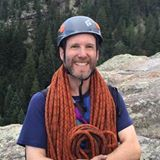
We seek certainty. It just feels good to certain about something, to really know it. Similar to other human needs like belonging, we naturally crave information and certainty: it’s rewarding and reassuring.
Uncertainty means we may not be in control of what’s about to happen, or take any action to mitigate negative impact. It can range from uncomfortable to feeling like a threat. As a result, uncertainty fuels anxiety for many of us. Our mind races with the “what ifs,” and we fret over the possible outcomes.
Uncertainty is inevitable. But what we can do is rethink how we approach uncertainty, and create a go-to strategy for how to cope with it when it arises.
Rethinking uncertainty
Routine and predictability tend to create peace within us and sooth anxieties; we know what to expect, as we’ve been here before—there’s a plan in place! But no matter how habitual your life is, uncertainty is still all around us.
Consider this: In our universe, astrophysicists can identify, or be certain of, only about 4 percent of all of the stuff contained within. The other 96 percent? It’s all stuff they “can’t see, detect, or even comprehend.”
They can make measurements that demonstrate the relationship all this unknown stuff (dark energy and dark matter) has on the known stuff. But we have no certainty as to what those substances actually are. They’re unknown now, and “possibly forever.”
With that level of uncertainty, uncertainty becomes routine. We will never know all of the things, or be able to plan for every future. When we embrace this idea, we invite a rethinking of uncertainty and becoming more comfortable with the outcomes, whatever they may be.
Responding to uncertainty
Uncertainty can feel scary. How can I make a decision unless I am certain about all the factors affecting my decision? Uncertainty can trigger our fight-flight-freeze reaction. We all develop our own particular strategy of how to deal with these moments.
Do you freeze into inaction, plow forward no matter what, or run away into distractions? While any one of these may work some of the time, rarely does one reaction resolve all the varied uncertainty that arises in our lives.
Enter mindfulness. Mindfulness is “paying attention on purpose,” with qualities of kindness towards self, suspending judgment, and being curious. This way of paying attention to the moment to moment unfolding of our life invites us to “be with what is.” As I allow myself to observe the unfolding of the world outside and my reaction inside, I can become aware of my usual reaction to uncertainty. And I create the space to hold both the uncertainty and my reaction to it.
In this holding space, I engage “wise” mind. Wise mind integrates my rational and emotional brain regions, resulting in a more accurate assessment of the current situation. And results in a more creative response. Goodbye knee-jerk reactions and endless “scenario surfing;” hello best fit for the current situation, uncertainty and all! (Including the possibility of no action and simply being comfortable with the uncertainty).
You’re not alone
Uncertainty affects all of us, and we have the option of engaging mindfulness and “be with what is.” It isn’t always fun, but with introspection, we can tolerate it. The next time you feel uncomfortable with uncertainty: Stop, breathe, and join the club hanging out in the uncertain 96 percent!

By Paul Deger, MA, LPC, PT
Mindfulness Facilitator and Product Manager, Moment Health
Paul Deger has over 30 years’ experience in healthcare. He earned his undergraduate degree in physical therapy at Marquette University. As a physical therapist, Paul has practiced in both inpatient and outpatient rehabilitation settings, specializing in neurological disorders. He furthered his studies in motor learning and control in the graduate physical therapy program at the University of Pittsburgh.
Paul then shifted focus from physical to psychological health and completed his graduate studies at Naropa University, Boulder, earning a Master’s in Mindfulness-Based Counseling Psychology. On retreat, he has also trained in Mindfulness-Based Stress Reduction with Jon Kabat-Zinn and Saki Santorelli of the Center for Mindfulness at University of Massachusetts Medical School and studied in sangha with Lloyd Burton, Dharma teacher from Spirit Rock Meditation Center. Recognizing the impact of spirituality on health, Paul more recently studied pastoral care at Iliff School of Theology in Denver.
